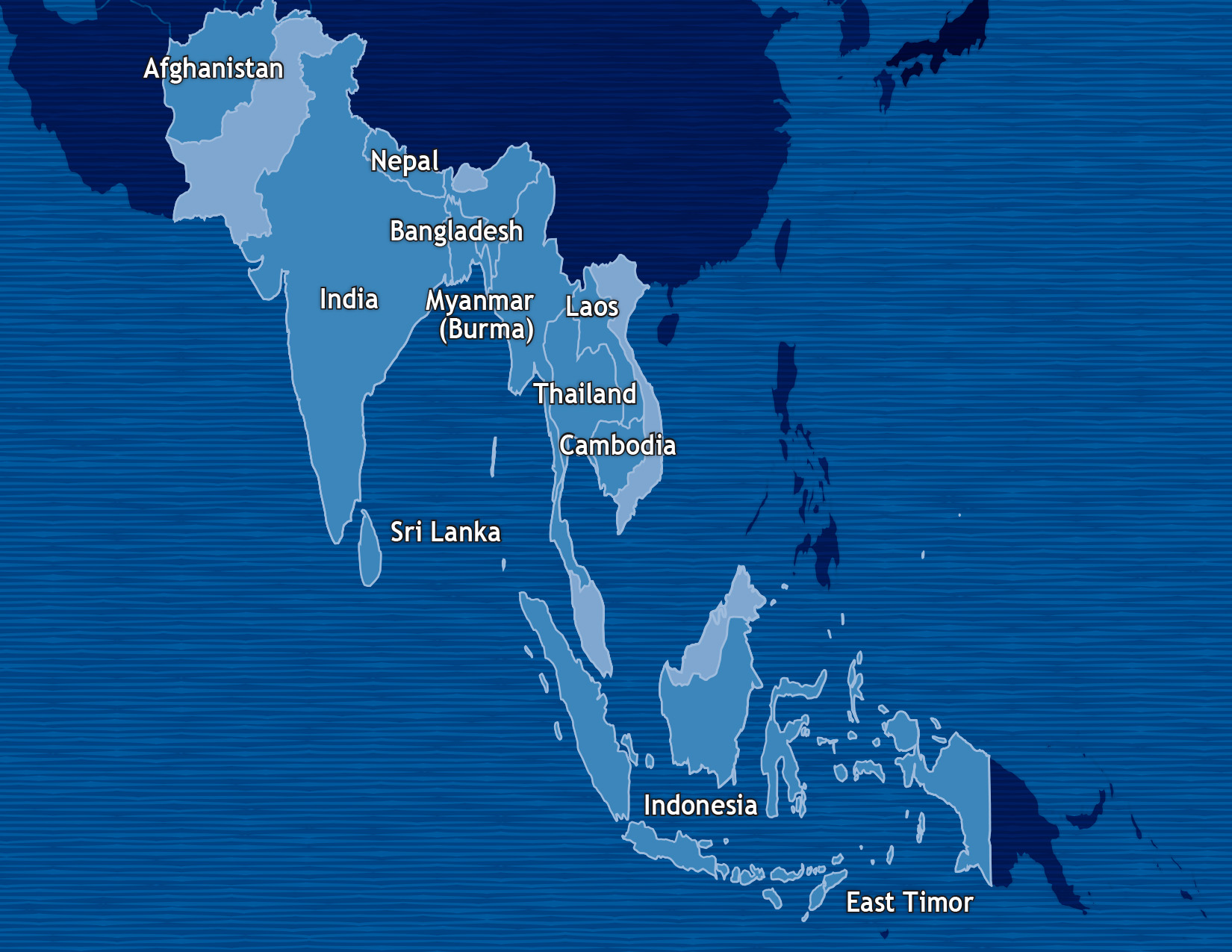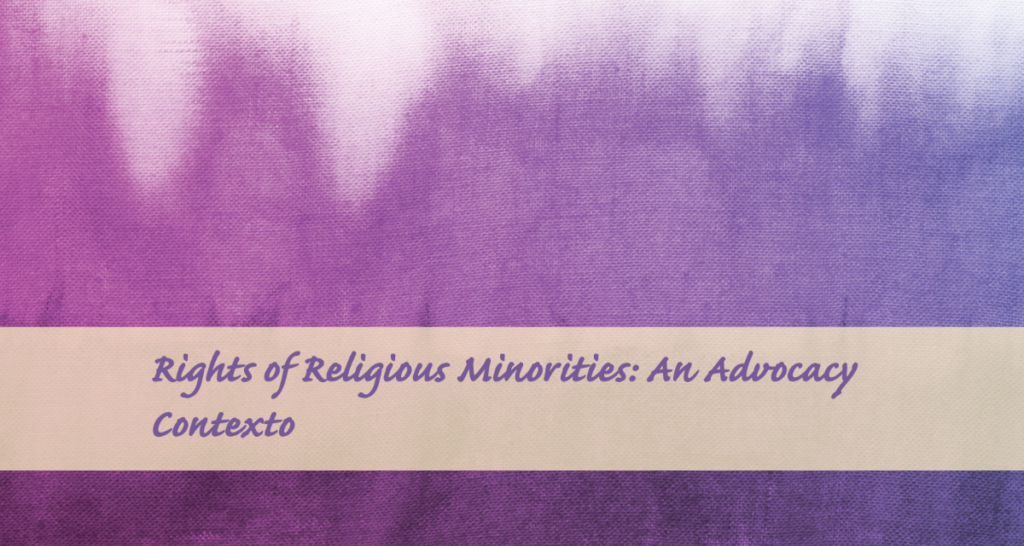Advocacy Contexto: Rights of Religious Minorities
 On Sunday, April 21, 2019 Sri Lanka experienced several bombings on Easter Sunday. Most occurred in the capital, Colombo, but one occurred at a church in the Eastern city of Batticaloa.
On Sunday, April 21, 2019 Sri Lanka experienced several bombings on Easter Sunday. Most occurred in the capital, Colombo, but one occurred at a church in the Eastern city of Batticaloa.
Rev. Sri Jude Vinothan was preparing to lead the Easter Holy Communion service for his congregation when one of his neighbors called out, “Be careful Father as there have been many bomb explosions in several churches.” He paused in a moment of shock but continued to prepare for the Easter Holy Communion service hoping that it was only a rumor. In the midst of the worship, another man anxiously asked the congregation to refrain from singing loudly because Muslims were attacking many churches and from the sound of the singing, they may come to know that this is a church and attack them, too. Rev. Jude encouraged them not to be afraid and to perhaps hold a conversation about these rumors after the service. He truly believed that this alarmist news was just a rumor. However, by the end of the worship service police were waiting outside the church and told him: “Father, please send your people home as quickly as possible because there have been multiple bombings in churches and tourist hotels. This is for your own safety and crowds should avoid gathering in any one place.” At this point, Rev. Jude realized that there was an actual security risk and immediately sent the congregation home.
He hurried to a neighbor’s home and saw the distressing news of five explosions across the country in three churches and two large hotels. More than 300 people died and many more were injured, including some very young children attending Sunday School at a church not unlike his own. It had been more than ten years since he had seen that type of violence and devastation in his country and it reminded him of the war years in Sri Lanka when such scenes felt commonplace.
In the days following, local security forces discovered that a local radical Islamic group was responsible for the suicide bombings. The general population recognized that elements in the Muslim minority were responsible for the attacks and widespread discrimination against the Muslim community ensued. Muslim shops and restaurants were boycotted and hate speech was rampant. Muslim business owners were afraid to open their shops in town and those who did found that very few people were their purchasing goods. How was the church to respond?
The Church’s Response
Global Ministries partner, the Church of the American Ceylon Mission (CACM), took immediate action following the Easter Sunday bombings to grieve with those affected by the violence, to reach out to the Muslim community, and to initiate Christian-Muslim dialogues in hopes of building trust and connection and preventing retaliatory violence.
As Rev. Jude said, “A small group of people are responsible for these heinous crimes. To ensure a future peace and a pluralistic society where all religious minorities can exercise their democratic rights, we must commit ourselves to this end. Only then can we find a way forward together in our multi-ethnic and multi-religious society in Sri Lanka.”
CACM has been involved in interfaith dialogue for many years and connected to regional interfaith dialogue networks. Based on these connections, Rev. Rohaan, the pastor of St. John’s Church in Batticaloa, visited Kattankudy, the town where the bombers came from, the day after the bombings. He and his CACM colleagues met with religious and civic leaders from the Muslim community knowing the urgency of acting quickly to minimize the possibility of further community polarization. Since then, St. John’s has been at the center of numerous gatherings to re-build connections between Muslim and Tamil communities.
Rev. Rohaan and his CACM colleagues understood that many Tamil people were targeted in the same way during the civil war years because they were suspected of affiliation with the Tamil Tigers (the group fighting the government in the civil war), which for the vast majority was untrue. In the same way today, many Sinhalese and Tamils categorize all Muslims as radical Islamic terrorists, which is also a generalized statement not bearing any truth.
CACM is fully committed to working together with the Muslim community and to working on interfaith and peacebuilding initiatives among diverse religious communities in hopes of preventing further violence.
Digging Deeper: Religious Minorities
Southern Asia is an incredibly diverse region with a rich tapestry of traditions, languages, and religions. In Sri Lanka, for example, Sinhalese Buddhists make up 70% of the population while both Christians and Muslims are religious minority groups. We often see religion as the shorthand used to point toward other divisions within society. Since the end of the Sri Lankan civil war in 2009, conflict between religious groups has increased, particularly conflict between Buddhists and Muslims. While Christians have both Sinhalese and Tamil populations, most Muslims in Sri Lanka are Tamils. Anti-Muslim riots in early 2018 in two cities in Sri Lanka followed similar riots in 2014. It was also reported that in 2018 there was a sharp increase in attacks against Christians. There was concern that following the Easter Sunday bombings that the Sri Lankan government would increasingly target Muslims in the name of preventing terrorism, though globally such targeting has been proven more likely to increase extremism by isolating and frightening the minority community.
CACM remains committed to the long-term work for peace in the region. Darshan Ambalavanar, Director of Diaconal Ministries with the Church of the American Ceylon Mission (CACM), says, “It has become clear that there are many dimensions to the work of peace in this region: a need to engage the atrocities of the recent past and to explore ways of shared mourning and commemoration and mutual acknowledgement of harm done to each other; the necessity of building social relations among youth and particularly to strive to develop socially integrated schools; and to develop a civil society consensus on political power sharing. All of these are large tasks that are maybe beyond the capacity of any of us, but CACM is committed to working with those who also hunger for peace and are already involved in the hard and long labor ahead of us.”
Discussion Questions
- What can we learn from these experiences in Southern Asia?
- Who are the religious minorities in your community?
- What can we do to support religious minorities in our own communities?
Learn
Rights of Religious Minorities video bible study
Pray
Fear and Peace: A biblical reflection based on John 20:19-29
By Rev. Mani Luke John from the Church of the American Ceylon Mission (CACM)
Advocate
Attend a worship service of a different faith tradition, find ways to learn more about another faith tradition and learn about Bystander Training for specific strategies for responding when witnessing instances of discrimination in your own community.
Give
Give to support CACM’s ongoing interfaith work in the region to foster trust and friendship among Muslims, Christians, Hindus and Buddhists

